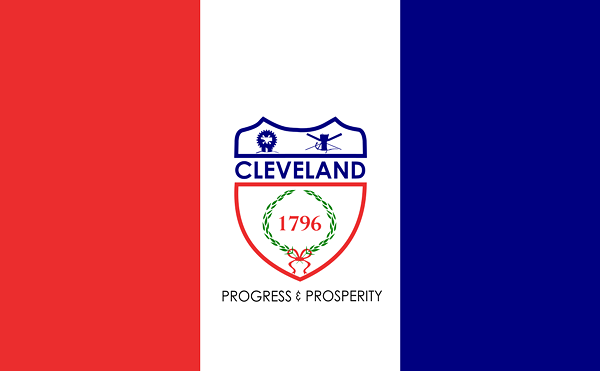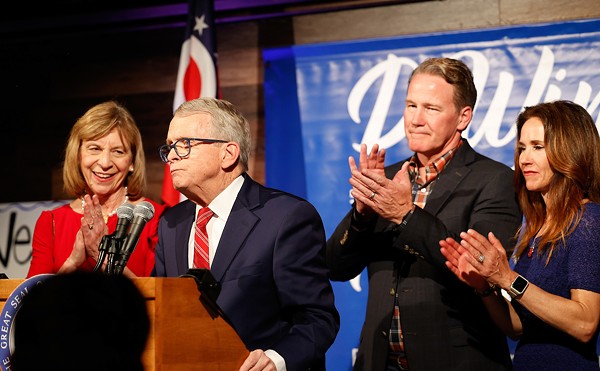He had heard much of it before. Hell, he had said much of it before. But on this day, June 1, 1998, it was even more bitter than usual -- beyond the heap of slights and grudges that had piled up over the last 10 years, beyond the shifting alliances that had made the family a sort of one-stop makework program for local attorneys.
No, Donald T. Grogan -- patriarch of the Grogan family, president of the T.W. Grogan Company for 23 years, and son of its founder -- was clearly not a happy man. Thanks to a court settlement several years earlier, he held little real power in the family business. It had also been clear for some time that the company, his father's legacy, would not be around for the family's next generation to run, as he had once hoped.
Even so, the events of this meeting seemed to take him by surprise.
His oldest son, Timothy Grogan, the president of the company, had assembled its directors for a presentation on a real-estate investment trust. For years, the board -- consisting of Don, his sons Tim and Mark, and daughters Molly Kilfoyle and Ann Gross -- had been debating how to sell off the company's assets, including the Aurora Commons shopping center in Aurora, the Phelps Building in Cincinnati, and its signature property, the Hanna Building in downtown Cleveland, where the company had its offices.
Now, it was clear that Mark, Molly, and Ann were determined to do something about the way Tim had been running the company. Though he had far more experience in the business than any of them, they felt he was dragging his feet on selling off the company's assets. They also resented the way he treated them. They called Tim crazy, a demagogue, a "Napoleon," a liar -- which was an improvement on the meeting held 11 days before, at which they said he was "emotionally unstable." He was compared to Theodore Kaczinski, the Unabomber.
They wanted him out.
Mark, Molly, and Ann argued that the company's day-to-day operations needed to be separated from the Grogan venom. They wanted someone who wasn't a family member to be the company's president.
"Over five years ago we were told by doctors, by mediators, to move this company and sever the ties because of the emotional distress that this company has caused on our families, our children," Ann said to her father.
"This company hasn't caused anything," Don retorted. "It's the family that's wrecking the company . . . Don't get it backwards."
Then Don Grogan said the one and only thing that his entire family could probably agree on.
"This," he declared, "is a dangerous family."
The descendants of T.W. Grogan aren't the wealthiest family in Cleveland, nor the most prominent. But they may be one of the most litigious, at least when it comes to settling family differences. Since 1991, there have been lawsuits brought by brother against brother, brother against sisters, sisters against brother, father against sons, father against sons and daughters, and brother against everybody else. In the last 20 months alone, members of the Grogan clan have filed five legal claims of one type or another against each other.
The first of those came three days after the June 1998 board meeting, at which Tim Grogan was removed as president. The latest case was filed just seven weeks ago. So far, only one of these cases has been dismissed, and nobody expects the others to be resolved anytime soon. Indeed, the only time the entire Grogan family gets together anymore is at the behest of somebody wearing a black robe and holding a gavel.
All this over a company that barely exists anymore. On December 31, 1999, the T.W. Grogan Company ended all employment contracts (with the exception of Don Grogan, who is still owed deferred compensation). The company closed a deal to sell the Hanna Building in August and the Phelps Building in December. A final deal for the Aurora Commons shopping and office complex is reportedly in the works.
One reason for all this fighting isn't hard to figure -- there is a boatload of cash up for grabs, and everyone wants to fill their pontoon. Estimates put the amount at stake around $25 million.
But even before millions were to be divvied up, the Grogans had become notorious for their own particular brand of infighting. In some ways it's a wonder the company lasted as long as it did. While most families are content to confine their misery to the private spaces of familial strife -- behind bedroom doors, at the dinner table -- the Grogans have seen fit to provide a uniquely public window onto their woe, a lesson spelled out in legal briefs: "How to Kill a Company and Destroy a Family in Less Than 18 Months!"
Even after hanging out their dirty laundry in thousands of pages of public documents (one suit alone contains more than 1,800 pages), the Grogans were ambivalent about granting interviews for this story. First they agreed to talk, then they declined; then they agreed again, then they declined again. In the end, all of the principals (or their attorneys) in the company were contacted, and all refused to discuss their cases.
Of course, businesses far bigger than the T.W. Grogan Company dissolve all the time. And much better-known families fight as frequently. But nobody seems to do it with the ferocity of the Grogans, a trait that lost its ability to amuse anyone familiar with them long ago. Now people who know the family just shake their heads at the whole affair and say how sad it is. Others wonder if reporters' interest in the family is out of some perverse sense of curiosity.
"Do you specialize in articles about fucked-up, dysfunctional families?" one asked at the mere mention of the Grogans. "Because you picked a good one."
The Founder
The ghost of Thomas W. Grogan, dead since 1985, looms large over his family's misfortunes -- as well it should. He was the kind of guy people don't forget, remembered as being so straight and good and decent that it's a wonder he hasn't come back from the grave to kick some discontented Grogan tail. T.W. was the kind of man who, in the late 1950s, called Herman Pirchner, proprietor of the old Alpine Village restaurant, who had fallen on hard times, into his office and handed him a check for $10,000.
He stumbled into real estate, really, just trying to make ends meet. Born in Oberlin and raised on a farm in Wakeman, Ohio, T.W. Grogan came to Cleveland in 1920 after a stint in the Navy during World War I. He had transferred from Miami University to Western Reserve, where he played both basketball and football. After college, he got jobs teaching English and history at Collinwood and St. Ignatius high schools. At nights he worked at the May Co. and during the summer picked up part-time work on city playgrounds.
Grogan was trying to scrape together enough money to buy a car when a friend who sold houses called and asked if Tim, as everybody knew him, could show a house to a potential buyer. If he sold it, he would get half the commission.
Grogan made the sale. The commission was more money than he made in a month of teaching.
In 1926, he started his own real-estate operation with $500 in a one-room office. He was fiercely intelligent, tall, and handsome. His hair had gone gray prematurely, but he used that to his advantage, letting people think he was far older and more experienced than he actually was. During the Depression, as others faltered, he saw opportunities to expand. His business grew to more than 150 properties in Ohio, Michigan, Illinois, and New Jersey. By the 1940s, Grogan's operation included real-estate brokerage and mortgage loan departments. And by the time he retired in the 1960s, his companies had acquired some of the most prominent buildings in town, including the Arcade, a stretch of buildings on East 105th Street and Carnegie Avenue -- and the Hanna Building.
From the day it opened in 1921, the Hanna Building had been one of the most conspicuous addresses in town. It was built by Dan R. Hanna as a tribute to the memory of his late father, U.S. Senator Marcus A. Hanna, who had owned the Euclid Avenue Opera House on the same site.
It was appropriate that the Hanna, a gift from a son to a father, passed into the Grogan family, for it seemed as though Don Grogan, the only child of T.W. and Margaret, lived much of his life in tribute to his father. He served in the military during World War II, just like his father had in WWI. After the war, he completed his degree at Western Reserve University, just like his old man. After graduating in 1948, he followed T.W. into the family business, working with him for almost 20 years before T.W. eventually called it quits. When his first son was born, Don and his wife named him Timothy, another nod to his father.
Thomas W. Grogan cast a long shadow, but Don had the good fortune to inherit many of his father's best traits. He was smart as hell, read voraciously, and remembered everyone and everything. What he may have lacked in entrepreneurial zeal, he made up for by sheer force of personality. Don was a born storyteller, always able to pull out the perfect anecdote, whether he was trying to explain a business deal in the boardroom or entertaining the boys over a glass of Dewar's at the Playhouse bar.
Then things changed, for good.
The Tragedy
Tim smelled smoke. It was just after one in the morning, two days after Christmas, 1965. He was only 11, but the kid had the good sense to awaken his father. Don ran down the stairs in the family's Cleveland Heights home and saw the Christmas tree and draperies on fire.
He went to the kitchen and got a pitcher of water to throw on the flames, but it didn't help. Don ran back upstairs and grabbed the other children.
All the kids -- Mark was 10; Molly, 8; Ann, 5 -- got out physically unharmed, though Don suffered burns on the face and hands. His wife, 33-year-old Carol Grogan, wasn't as fortunate.
Newspaper accounts from the time differ as to exactly what happened. According to one, Carol initially got out of the house, then went back inside to rescue her children, not realizing in the confusion that they were already safely outside. Another story reported that she never left the house. Either way, her body was found in a second-floor bedroom, five feet from a door leading to an outside balcony.
According to people who know and work with family members, the tragedy is rarely brought up, and then only in the most oblique ways. Don eventually remarried.
Not long after the fire, T.W. decided to leave the day-to-day operations of the company to Don, who was named president. T.W.'s health was in decline, but he stayed on as chairman of the company's board of directors.
Just as Don followed his father into the family business, so Tim later followed Don. In a letter written to Tim's wife, Dara Grogan, in November 1992, Don said that he and his father had always planned for Tim to take over the company some day.
"I often wondered if he really liked the business," Don wrote. "I loved my job, and I love the business, and I really don't know where those many years have gone. It is time to pass the baton, and I know it, and the plan always was (on the part of my father and myself) to have your husband run the company."
Like his father, Tim joined the company after getting out of college, in 1976. And for 10 years, they worked extremely well together, Don would later say. In 1986, he named Tim president of the company, just as his father had made him president 20 years before.
"They got along well back then," says an employee who worked with the Grogans in the 1980s. "Then the children started to grow up and get their own ideas about the company."
Tim held the job of president for just two years. In 1988, he decided to go back to school and get a graduate degree in psychology. Two years later, in 1990, he returned to the company as vice president of finance -- a decision that, several sources say, came at the behest of other family members concerned about how Don was running the company.
For all his erudition and charm, for all of his generosity, there was a flip side to Don Grogan, the side that could lash out with anger and resentment at family or even, at times, his own tenants.
"Let's put it this way," says one person who has had extensive dealings with the Grogans over the last several years. "It's like Sinatra. He can be the greatest guy in the world if you're with him. But he can also be an asshole."
In 1992, at a heated board meeting, Don still seemed bitter over Tim's decision to leave the company four years earlier: "You were president once," he said to Tim. "I made you president once. It lasted two years and one month. By the way, when you write letters, don't put on those titles that you have. I gave you all those titles. I'm ashamed of you, Tim."
By then, Mark Grogan had also joined the company. His brother Tim had long played the part of the dutiful older sibling, but Mark chose a different path. After getting out of school, he moved to Connecticut and held a variety of jobs. For a time, he was a social worker.
In August 1991, he returned to Cleveland and was hired into the family business on a trial basis. The prodigal son had come home, but there would be no feasts in his honor. At the board meeting called to confirm his permanent appointment to the company in December 1991, Don made it clear that Mark was not his ideal choice as an employee.
Plain and simple, Don didn't think Mark understood the real-estate business. Several years before, Mark had become interested in buying and renovating an apartment building in New London, Connecticut. The T.W. Grogan Company set up a subsidiary, Grogan Inc., with Mark as president, loaning Mark $380,000 to buy, renovate, and run the building. Grogan Inc. also obtained $830,000 in financing, for which the T.W. Grogan Company was ultimately responsible.
But the venture did not work out. "Let's face it," Don said at the December 1991 board meeting. "We are not looking for a major national property in Connecticut. We bought this to give Mark a job. A job and a chance to prove himself. This building has borrowed, including our money, over a million dollars so far and has not paid back any money and has lost $70,000 in 1990 alone."
Then there was Cincinnati. In 1989, according to allegations made by Don in court papers filed several years later, Mark negotiated with the city of Cincinnati for the purchase of a building, offering $500,000 for the property. He wrote a check for $20,000 in earnest money. But Mark's company, Grogan Inc., didn't have the money to cover the check.
The other problem was the building itself. It had been condemned by the city of Cincinnati 7 years earlier and had stood vacant for the previous 11 years. The next-highest bid, after Mark Grogan's, was $1.
"I had no knowledge of this offer, and Mark acted without my approval while he wasn't even employed by us," Don said at the meeting. "It scares me to think what he would do if he were given some authority."
The Breakup
Don Grogan had talked about retiring for years, but by the end of 1991, he was becoming increasingly frustrated with his options. The real-estate market was in the tank, and he was not happy with his sons. In fact, he was considering bringing in an outside management team to run the company.
But he would never get to make that choice.
Over Don's objections, Mark was appointed vice president of operations at the December 1991 board meeting. At the time, the T.W. Grogan Company's board was made up of just three people: Don Grogan, Tim Grogan, and Edda Liutkus, who had been the company's secretary and treasurer since the mid-1980s. Though she had no financial stake in the company (that was reserved to family members), she held the critical vote when Don and Tim disagreed. And, on the appointment of Mark, she sided with Tim.
Then, in a move that would foreshadow the actions taken by Mark, Ann Gross, and Molly Kilfoyle more than six years later, Tim brought up three proposals. Their net effect was to strip Don of his power, making him little more than a figurehead. Liutkus also felt it was time for a change, so Tim had the votes.
Don, not surprisingly, would have none of it. "I have no intention of retiring from this company," he said.
"We have a motion and a second," Tim said.
"I did at one time," Don continued, "but before I can retire, I have to leave something that's working. And this company is not working."
"We have a motion and a second. Do you choose to -- are you voting no on the motion?"
"Well, I'm voting that there's no sense in setting up a retirement plan for me, because I'm not retiring. Even you can understand that. I have to stay here until I get something that works, and what we have is not working. So I appreciate your kind feelings, but I'm not retiring."
Then the fighting took on a more personal tone.
"I feel sorry for you," Don said to Tim. "I remember you. We got along fine for 10 years in this company. We never had an argument until you started getting under the control of other people. Right now, it's Mark, and what dogs drive him I do not know. Get your head back on your shoulders, for God's sake. This is crazy."
"Any other comments?" Tim asked.
"Yes. This company will end up in courts. We'll have no family, we'll have no company, and all the money will be gone, and my granddaughters -- six of them -- and my grandson, I don't know where they'll be working because of the mischief that's been done in the last six months around here."
Within nine days of the meeting, Tim Grogan and Liutkus approved a stock swap that shifted majority ownership of the company away from Don to Tim and Mark. Three weeks later, Don sued the company for $16.5 million, arguing that he had been wrongfully terminated, and that Tim and Edda Liutkus had breached their fiduciary duties. He also alleged that Tim and Mark lacked the "necessary business experience and judgment to run the company."
That case dragged on for three years, creating a surreal situation around the T.W. Grogan Company offices. Father and sons continued to work there together, even as they were fighting it out in court. "It was very strange," says Liutkus. "On the one hand there was this feeling of hostility. On the other hand it was business as usual. After a while, the lawsuit was just there."
Finally, in 1995, the family settled the case. Tim was named president. Don retained a seat on the board. His daughters, named as plaintiffs along with their father in the case, also took seats on the board as well as positions in the company.
But the one time the Grogan family could agree also set the stage for their most recent set of battles. A rift developed between Tim and his siblings when he decided they didn't spend enough time at the office and were incapable of making informed decisions about running the business. For their part, Mark, Molly, and Ann grew unhappy with Tim's way of running the company. Moreover, they felt that his wife Dara, an attorney, was too eager to use threats of lawsuits as a tool to intimidate other family members.
"I think the problem is, Tim and Dara have a different agenda, and they've made that quite clear with all the things they've been doing over the past months," Ann said during the June 1998 board meeting in which she, Mark, and Molly voted to remove Tim as president.
That agenda became clear after the death of Margaret Grogan in February 1996. The family of T.W.'s widow stood to inherit significant amounts of money and property upon her passing. But true to form, disputes arose regarding the estate.
Tim and Dara Grogan questioned loans made to Ann Gross and Molly Kilfoyle by their grandmother that had not been repaid before her death. (The loans had been forgiven, Ann and Molly said.) Tim and Dara also questioned accounting practices regarding the payment of the mortgage and expenses on Margaret Grogan's home in Cleveland Heights, which Ann Gross inherited, and her property on Sanibel Island, Florida. (Both Ann and Molly have said everything was proper.)
It was those inquiries, Tim and Dara argued, that spurred Mark, Molly, and Ann to oust Tim from his position as company president in June 1998. At that same meeting, the trio also passed a motion to suspend Dara from providing any legal services to the T.W. Grogan Company, demanding that she return all keys and documents. It didn't help much that Dara Grogan had recently been diagnosed with lymphoma, a type of cancer.
Three days after being removed as company president, Tim Grogan filed a lawsuit against his brother and sisters, charging that the move violated an earlier employment agreement. And it wasn't long before Don got back in the action. In March 1999, the T.W. Grogan Company agreed to sell the Hanna Building, the Hanna Annex, and several surrounding properties to the Playhouse Square Foundation for $17.5 million. But Don felt the Hanna complex was being sold for millions less than it was worth. So he did the only thing anyone, or at least any Grogan, could do in the situation.
He sued.
Tim, who still held a seat on the board, agreed with his father and voted against the sale. But he was outnumbered by his siblings, and the sale went through. That vote, he argues in one of his lawsuits against the company, triggered "a torrent of retributive and punitive conduct."
After a deal to buy out his brother and sisters fell through, Tim demanded that the company cash out his shares. Rather than buy him out, however, the company filed a suit asking the court to determine the fair cash value of his holdings. That suit effectively removed him from having any further say in the T.W. Grogan Company, he charges, since under state law, a shareholder's rights are suspended pending litigation to determine the value of his stock.
Last August, Tim filed a counterclaim that seeks the appointment of a receiver "to ensure that there will be sufficient funds left from the liquidation to pay him the court-determined fair cash value of his [stock] shares." In December, he filed another lawsuit against the company, arguing that his siblings were preventing him from cashing out by engaging in "frivolous conduct in litigation." The suit asks for more than $250,000 in damages and immediate compensation for his share of the company, which Tim projects to be $4.5 million.
"At this point," says Tim's attorney, Bruce Elfvin, the best thing that could happen is for the company to "buy out all the shares that relate to Tim, at a price that's fair to Tim."
Nothing, however, is that simple with the Grogan family. Tim's brother and sisters contend that a formal liquidation plan is in place, and their older brother will get his share of the pie. It's not as if he's been neglected thus far, they say. Even after he was removed as president of the company, he remained its highest-paid employee. And the family business is still paying his membership in the Union Club.
And, they take some delight in pointing out, Tim is the one who keeps suing them, even while carping about the depletion of company assets due to legal fees.
This wasn't the way Don Grogan, now 77, thought it would end when he took over the company 33 years ago. It wasn't what he envisioned just eight years ago, when he still hoped that the T.W. Grogan Company would be around for his grandkids to run.
"It is a healing time for the Grogan family," he wrote Dara Grogan in 1992, seven months after he had filed suit against her husband for "lacking the necessary business experience and judgment" to run the family business. "The arguments that have developed are gradually being put aside, and I feel good about the direction in which we are going . . . Now, we are into the third generation, and that is rare, indeed, with companies like ours. Only about 15 percent make it into the third generation. Now, I'm thinking about the grandchildren and making it, perhaps, into the fourth generation . . . If we play our cards right, we can do it."
On January 20, a court hearing is scheduled to consider the appointment of a receiver -- which, if granted, would take the dispensation of company assets out of the hands of all Grogans. Mark Grogan, Molly Kilfoyle, and Ann Grogan don't want that to happen. But maybe if it did, the old man wouldn't have to watch his children tear each other apart, as if, piece by piece, they were trying to destroy everything his father ever built.
Again.













